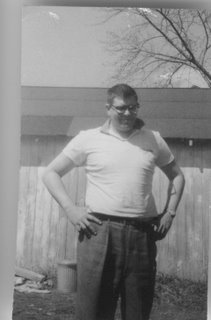Dad writes about Robert McBride Poag in Wayne County
After Robert Mcbride Poag returned to Wayne County, Tn. with his Chickasaw bride, Esther Burgess, they produced 12 children, including William Jasper Poag born in 1845 and married Fanny Staggs in 1865. William Jasper and Fanny produced 5 boys and three girls; Gus, Frank (Benjamen Franklin, my grandfather), Bill, Bob, Emily, Esther and Lizzie. ORAL TRADITION: It is said that Fanny Staggs was a tiny lady with an Irish temper, and that William Jasper was something of a rascal. On one of his birthdays, Fanny set up a surprise party for William Jasper. William Jasper became angry, when he saw all the horses, buggies and wagons in his yard, so he ran the guests off in a none too polite manner. This incensed Fanny, so she threw his clothes out into the yard. ------------------------------------------------------------------- My grandfather, Frank (Benjamen Franklin Poag) married Sally Nutt, who was half indian. Oral tradition has it that she was Cherokee, but uncle Grady Nutt told me it was Chickasaw. Lizzie Poag, Frank's sister married Bill Morrow in Lawrence County. She and Maw Poag (Sally) would have passed for sisters, if not twins. ------------------------------------------------------------------- BELOW IS A PICTURE OF FRANK IN THE MIDDLE BETWEEN HIS FOUR BROTHERS



